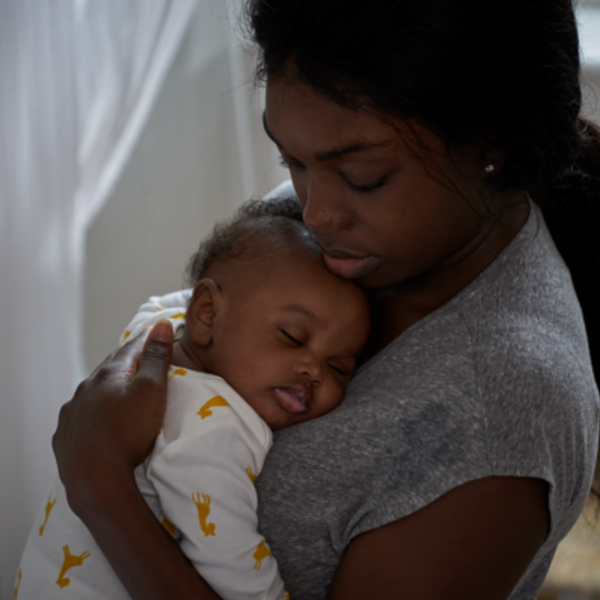Right now, you may feel you could fall asleep standing up. But believe it or not, young children need to practise going to sleep! That's why establishing a regular bedtime routine works really well. If you do the same things before bedtime most evenings, it helps your toddler’s body ‘learn’ when it's time to fall asleep, so they’ll settle down more readily.
Here are some tips for creating a routine that works for your family.
Tips for creating a good bedtime routine
Tip #1: Keep calm
Children can often tell if you’re stressed so if you want them to go calmly to sleep, try to stay calm yourself. Not always easy we know, but things like taking deep breaths and counting to 10 can really help. Our page on keeping calm with your child has more tips for staying in control when your wee one is trying your patience.
Tip #2: Be consistent
Different routines work for different families, so once you find something that works for you, try to stick to it. That way your toddler will always know what to expect in the lead up to lights out.
Tip #3: Allow plenty of time if you can
Try to allow at least an hour for winding down, bath and bedtime stories. If they know you’re trying to rush their bedtime routine for whatever reason, they can start to play up. We’ve suggested some ideas for a bedtime routine below.
Tip #3: Don't worry if things seem to go backwards
You may think you’ve got this bedtime thing sorted, only for everything to go haywire the following night! Don’t worry if this happens – it’s perfectly normal, particularly if something else has changed in your child’s life, like starting nursery or going to a new childminder. Our page on troubleshooting sleep issues has advice on what to do if things don’t go to plan.
Tip #4: Start the next day in a positive way
Even if you’ve had a trying night, try to start the next day on a positive note, talking to your child in a cheerful voice and praising them for something they’ve done well.
Ideas for a bedtime routine
All children are different, so it’s up to you to find a routine that works for your wee one. Here are some ideas you could try.
Step #1: tea time talk
Tea time is a good opportunity to go over what happens in the run up to bedtime. Talking through the evening routine together means your wee one will learn to know exactly what to expect.
Step #2: Quiet play and a cuddle

After dinner, spend some time together playing a quiet game, doing a jigsaw, colouring in or talking about what they did today, and what’s planned for tomorrow. Start this session around an hour before you want them to fall asleep, so there’s plenty of time for them to wind down.
Step #3: Bath time
Give them a warm bath and clean their teeth. If they’re not keen on toothbrushing, this page has tips to help. Then it’s into their pyjamas and into the bedroom.
If your toddler loves making a splash in the bath, try giving them their bath before your quiet play time, to give them a chance to calm down.
Step #4: Cosy room
Light summer evenings can make bedtime particularly challenging. So even if it’s still bright outside, close the curtains and turn on a night light. This helps your toddler understand that it’s bedtime now.
Step #5: Swap screen time for story time
Toddlers love getting to watch TV or play on a tablet, but try to put all devices away at least an hour before their bedtime. Books are much better for easing into the sleeping routine – and for helping you chill out too. Did you know that when you feel calm or happy, your heart beats more slowly and your muscles relax? And, guess what, so do theirs!
Snuggling down to read stories is a lovely way to get close to your child. And it’s also one of the best things you can do to help them learn to talk and read. Even small babies pay close attention to what you're talking about as you show them pictures and read to them. Watch for them start to bang on the pages as they try to get to their favourite part! You can find more story time tips here.
It can help to finish off with the same story every night, as your wee one will begin to associate that with it being time for sleep.
Step #6: Lullaby remix
As your child gets ready to drop off, think of a classic childhood song like ‘Twinkle Twinkle Little Star’ and sing it softly. When they respond, then you do the same, adding their sounds to your song. Keep adding their little noises to your remixed version until they become drowsy.
This back and forth remix is good for both of you – and they learn best when they feel safe and loved.
Stuck for song ideas? Check out the Scottish Book Trust’s Bookbug Song and Rhyme Library or Bookbug app.
Step #7: Big hugs
Last of all, give them a big kiss and cuddle. Cuddling makes them feel safe and secure, and this helps them to drift off. Then say ‘Goodnight’, ‘I love you’ and ‘Time to sleep.’ This means no more chatting.
Step #8: Tiptoe away
Now for the tricky part. For some parents, leaving the room straight away works for them, and their toddler will settle quickly. Others find that staying quietly in the room for a wee while helps give their toddler that extra bit of comfort and reassurance to help them get to sleep.
Some toddlers find it comforting to be able to hear you going about the rest of your evening; that might be washing the dishes, unloading the washing machine, getting your older children to bed, or the low noise of the TV – anything soft, gentle and routine that lets them know you’re never far away.
Advice and support from Sleep Action
Sleep Action offer advice and support to parents and carers, or to young people themselves, for any child aged 18 months to 18 years with a sleep problem. Visit the Sleep Action website to find out more and get in touch.
You may also find this leaflet from Sleep Scotland about toddler sleep helpful.
 Activities & Play
Activities & Play Behaviour
Behaviour Childcare
Childcare Development & Growing Up
Development & Growing Up Family, Friends & Relationships
Family, Friends & Relationships Feeding Your Baby
Feeding Your Baby Food & Eating
Food & Eating Health & Safety
Health & Safety Mental Health & Wellbeing
Mental Health & Wellbeing Money & Work
Money & Work Online Behaviour & Safety
Online Behaviour & Safety Pregnancy & First Days
Pregnancy & First Days School & Education
School & Education Sleep
Sleep










 Mental Health & Wellbeing
Mental Health & Wellbeing
 Health & Safety
Health & Safety